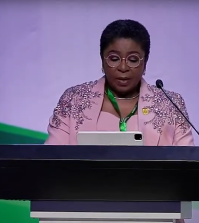Ministers should set UK departmental leaders’ goals, says reform commission

The renewal of UK permanent secretaries’ contracts should be based upon their performance against goals set out by ministers, a think tank has advised in a report backed by Cabinet Office minister Michael Gove.
The recommendation was included in a report published on Monday by Policy Exchange, a centre-right think tank with links to the governing Conservative Party. It convened a commission to consider civil service reform and modernisation, including former ministers from across the political spectrum.
Among its suggestions, it advises that permanent secretaries’ appointments “should be conditional on their track record for reform”. Targets should be set in two ways, it noted: by secretaries of states sending letters of strategic priorities to their departmental leaders; and through the Outcome Delivery Plans that capture departments’ key objectives.
While the report backs the convention that ministers may not dismiss or manage civil servants, it argues that “it is imperative that they discuss their priorities with their Permanent Secretaries, including the personnel changes or appointments that may assist in the delivery of those priorities” – a change that would strengthen ministers’ hand in selecting key officials.
Michael Gove, who holds the civil service reform brief, supported the report’s findings. “If we are to face the blizzard of future technological, environmental, and economic challenges and changes, we must embark on a reform and modernisation programme so that government serves the public better,” Gove told the Financial Times yesterday.
“Ministers and officials will ensure the promotion of the most capable civil servants, with promotion based on talent rather than time served,” he added.
Alongside its recommendations for senior appointments, the report ranged across a number of subjects. These included simplifying the government’s digital governance landscape, and providing training for ministers.
Digital transformation
Digital transformation is a “Sisyphean challenge”, the report says. And while “there has been much progress” since 2010, predominantly due to the establishment of the Government Digital Service (GDS), weaknesses remain. These include “identity assurance, data sharing and the interoperability of systems across [the national civil service] and local government”.
The new Central Digital and Data Office (CDDO), launched at the start of this year, “represents an excellent opportunity to reinvigorate the leadership of digital transformation”, the report said. But it currently “falls short of the government’s original expectations”.
The report points to the government’s lengthy search for a permanent secretary-level Government Chief Digital Officer (GCDO). The post was advertised and re-advertised in various forms in 2019-2020, but no appointments were made – with civil servants telling GGF that the compensation on offer wasn’t competitive relative to private sector salaries. The government has now announced that the CDDO will be headed by an executive director instead.
“Crucially, this makes the CDDO’s relationship to the GDS unclear, since the CEO of the latter will also report to the COO of the civil service and not to the Executive Director of the CDDO,” the report says. The CDDO appears to be taking control of the digital, data and technology (DDAT) profession, many digital policy issues, and the setting and policing of DDAT standards, while the GDS focuses on building shared services and supporting departments; but the report authors believe that a single clear leader is required to ensure the government’s central digital units function effectively.
“The government must not lose sight of the need for a GCDO with whole-of-government authority,” the report says. “Moreover, if they are to achieve this with the skills that the job requires, remuneration must increase by a factor of three if not four times.”
The report suggests that government should set formal targets to appoint director generals and permanent secretaries with “specialist digital skills”, and that every major delivery department should have a second permanent secretary “focused entirely on digital transformation”.
Ministerial training
The authors also considered ministerial capability and support. “The process of improving the efficiency and effectiveness of government is not one of simply reforming the civil service. Ministers must also develop the skills required to lead a department successfully,” the report argues.
Training programmes should support both secretaries of state and ministers of state, as the latter are “often the engine room of government”, the report states. Prospective ministers should also be included, it adds.
Topics should include procurement and digital delivery, alongside legal and constitutional topics and more daily tasks such as chairing meetings and making better decisions. “Greater ministerial training in such areas will help to ensure that, when policies are designed, ministers have a better understanding of the consequences and implications of different policy options,” the report states.





















